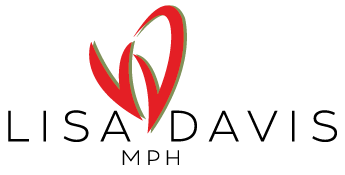
PERSONA
Risky drug-nutrient interactions
Guest:
Michael Roizen, MD
Dr. Roizen has more than 40 years of experience as a medical doctor and has been the doctor to eight Nobel Prize winners and more than 100 Fortune 500 CEOs. He currently serves as the Chief Wellness Officer of the Wellness Institute at the Cleveland Clinic, which is consistently ranked as one of the top ten hospitals in the United States. He’s also the chief medical consultant to the Dr. Oz Show and a best-selling author of 14 books, including four New York Times Best Sellers. A co-founder and originator of the popular RealAge.com website, and host of the national podcast: YOU the Owner’s Manual Radio Show, which airs on RadioMD. Dr. Roizen’s mission is to use his influence to help make America healthy.
Supplements are the latest trend in the wellness industry – from adding collagen to your morning cup of coffee to taking a turmeric pill, consumers are adding supplements to their wellness routines like never before
BUT most consumers are unaware that the supplements they may be adding to their daily regimes could have risky drug-nutrient interactions with the prescription medications they’re taking
Persona is leading the way in personalized nutrition. Acknowledging and recognizing drug-nutrient interactions is vital and something most consumers don’t take into consideration,” said Michael Roizen, M.D., Chief Wellness Officer at the Cleveland Clinic and Persona science advisory board member. “Persona subscribers can take advantage of the industry’s breakthrough technology utilizing the curated survey to help find the ideal supplement regimen that works for their wellness needs.”
From The Los Angeles Times: Understanding How Medications Interact with Vitamins
Technology, science and research are offering a personalization powerhouse at our fingertips, including products made specifically for us delivered to our doorsteps. We wear personal fitness trackers to track our steps, sleep and heart rates. Personal trainers design fitness routines made just for us. We understand that our family history, lifestyle choices and even genetics are predictive of our health needs and this information is integrated into our health care plans. But with all of this personalization, nutritional supplement options still deliver the same cookie-cutter solutions.
According to New Nutrition Business and its report “10 Key Trends in Food, Nutrition and Health 2017,” personalized nutrition is the next big nutrition movement, as people want individually tailored diets. When creating a personalized nutrition plan, it’s important to take into account holistic well-being; however, deciding what is truly right for you can be confusing.”Personalized nutrition shouldn’t be taken lightly. It’s not a catchy-named pack of vitamins or nutrition plans curated from a few questions about how you want to feel; it needs to include everything that makes you unique, down to the medications prescribed by your doctor,” said Dr. Michael Roizen, original chief wellness officer at the Cleveland Clinic, co-author of the new book “Age-Proof: Living Longer without Running Out of Money or Breaking a Hip” and Vitamin Packs science advisory board member. “Technology is creating amazing advances in personalized nutrition, but it’s only as good as the data it can collect and the information you are willing to share.”
Medication and nutrition interactions
Nearly 50 percent of the U.S. population is taking prescription medications, according to the Centers for Disease Control and Prevention, and 68 percent of Americans are taking dietary supplements, based on Council for Responsible Nutrition (CRN) estimates.With several new personalized vitamin subscription services launching, it’s important to select one that takes into account your diet, physical fitness, sleep patterns, lifestyle habits and family health history as well as medication use. Some drugs can deplete nutrients while others add nutrients to the body. One subscription service, Vitamin Packs, delivers customized vitamins and nutritional supplements in daily packs based on what it learns during a free nutritional assessment. Its technology cross-examines more than 650 possible medication interactions and recommends only what an individual’s body needs.
Mixing meds and nutritional supplements
Taking a statin? You will want to add Coenzyme Q10 (CoQ10) because the average blood concentration of CoQ10 in blood plasma decreases within 30 days by an average of 50 percent.
* Taking a medication for allergies or inflammation? Consider adding vitamin D and calcium. These types of medications may reduce calcium absorption, which can lead to unnecessary bone loss. Supplementing with vitamin D and calcium together may support bone health and calcium absorption.
* Taking a blood pressure medication? You should know that taking an iron supplement two hours before or after taking this type of medication can decrease its absorption rate.
* Taking a synthetic thyroid hormone? Look at your supplement facts to be sure you’re avoiding soy, iron and calcium. Soy, iron and calcium, if taken within four hours of a synthetic thyroid hormone, may reduce the absorption rate.
Personalized nutrition should be focused on the whole person. Be sure to consult your health care practitioner before starting any dietary supplement regimen.
